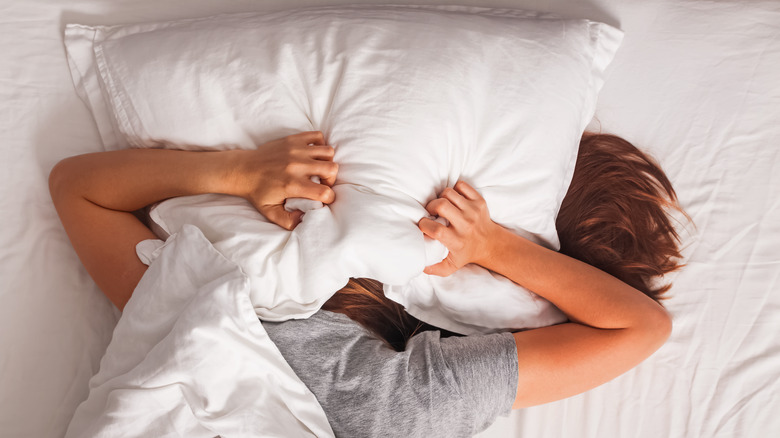
aslysun/Shutterstock
By Erica Andrews/Sept. 2, 2021 3:55 pm EDT
When the pandemic hit last year, many of our lives changed forever. Whether it was worrying about loved ones or locking ourselves inside for months, it was a difficult year for many of us. A majority of businesses also opted to have their employees work from home, in order to prevent the spread of COVID-19. For many Americans this was a welcomed relief because it meant not having to wake up extra early to deal with long commutes on congested roads. However, now that companies are deciding to open back up offices again, you might be feeling some extra anxiety over having to rise at the crack of dawn.
Thankfully, if you’re in this situation, there are key steps you can take that will help you ease into your new early bird schedule. Harvard Medical School Instructor, Rebecca Robbins, told CNN one of the best ways to achieve this is by waking up 15 minutes earlier than normal each day for a few weeks, until you’ve reached your desired time. “Fifteen minute increments is recommended because that’s enough to move in the direction of a new time zone, a new work schedule or what have you without being too disruptive,” she explained. “Unfortunately we can’t move our sleep schedules in a large way from one day to the next and hope to be just fine. It does take time, and so be patient.”
Other helpful tips on how to change your sleeping habits

If you’re like most of us and still having trouble waking up earlier in the mornings, you might want to try getting rid of those blackout shades. James Wilson, a sleep behavior expert, told Metro having natural light come into your windows will help your body to understand it’s now daytime. “It will reduce your lethargy and improve your alertness,” he explained. If you’re not ready to part with your blinds, Wilson also suggested trying a sunshine alarm clock that has light that rises in a similar way to the sun.
To get ultimate slumber time, CNN also recommends nixing those naps that you’ve been taking between meetings because they make it harder to fall asleep at night. But if you’re feeling extremely sleep deprived, it’s fine to take one, just make sure it only lasts 15 to 20 minutes and it happens between noon and 2 p.m. Another tip that seems obvious, is don’t workout three hours before you’re trying to get some shuteye. While it’s helpful to get your blood going with a run in the morning, it’s not helpful right before you’re trying to relax before getting between the sheets. Hopefully, armed with these suggestions from experts, you’ll be off to blissful sleep in no time.
Source: Read Full Article
